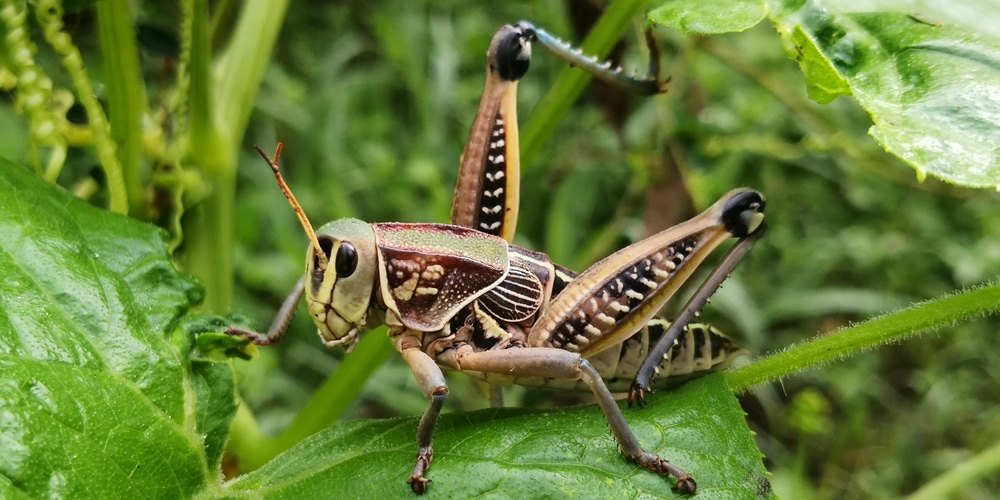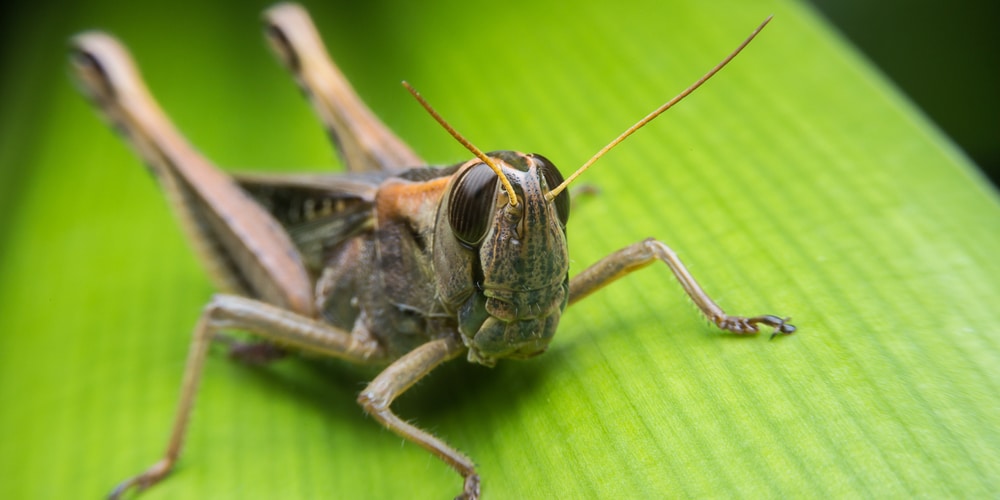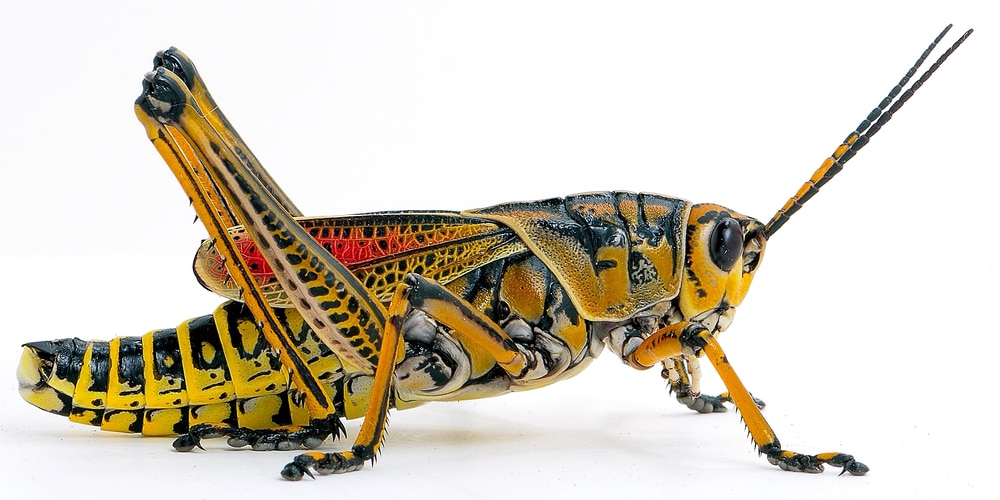If you’re out in the yard wearing a pair of sandals you may find yourself wondering do grasshoppers bite? Grasshoppers are one of the most popular insects that you’ll find in your lawn or garden. They’re always easy to see as no matter how tall the grass is, you can see them jump out of it. And, you really don’t need to worry about them biting you.
Do Grasshoppers Bite?
Like any animal or insect, grasshoppers have the ability to bite. But, they do not bite humans out of anger or as a defense mechanism.
If you’re out in the yard, you don’t have to worry about a grasshopper biting you, as they wouldn’t think to do it. Just ignore it and it will hop away,
When a Grasshopper Might Bite a Human?
As stated above, a grasshopper won’t bite a person in the wild. The only chance that you would have of getting bitten by a grasshopper is when handling them.
So, if you’ve captured some grasshoppers for the kids to look at or use as pets, biting can become an area of concern.
When you feed a grasshopper by hand, you may inadvertently get nibbled on or bitten by them. But don’t worry, grasshopper bites don’t usually hurt and they are not poisonous.
Do Grasshopper Bites Hurt?
While it is extremely rare for a grasshopper to bite a human under almost any conditions, they can bite you when handling them (usually only when they are feeding off of your finger).
Even if they do bite you, it rarely hurts. Try not to worry about it. If it does happen it’s not a big deal.
Do Grasshoppers Sting?
There are no known subspecies of grasshoppers that are capable of stinging a human being. In fact, no species of grasshoppers have ever been known to have a stinger.
Are Grasshoppers Dangerous in Any Way?
There are no grasshoppers found in the United States, Canada, Mexico, or Europe that pose any sort of threat to a human being as far as physically hurting them would go.
Grasshoppers Destroy Yards and Crops
While grasshoppers can’t hurt you directly, they can hurt you indirectly. If you have a grasshopper infestation they can cause serious damage to your yard or crops just by their mere presence. This is the way that grasshoppers do the most damage to humans.
They can Spit
Grasshoppers’ primary defense mechanism is spinning. This spit is often referred to as “tobacco spit. This is mainly due to the color of the enzymes and regurgitated food that the grasshopper will spit at you. This spit is harmless, but it is gross.
Are Grasshoppers Poisonous?
Yes, some species of grasshoppers can poison you if you eat them.
Grasshoppers do not have the ability to poison you through a sting or bite. But, they do have the ability to poison you through consumption.
Since grasshoppers are a pretty popular dish throughout the world it’s important to know which ones can poison you if you eat them.
In the United States, you really need to look out for the eastern lubber grasshopper. This grasshopper can grow up to 4 inches long and can be found in the Southern United States.
They can excrete an irritating foam-like spray that smells disgusting. If eaten it has the ability to make you sick.
Most of the poisonous species of grasshoppers are brightly colored to warn anyone or anything that might be thinking of eating them to stay away or suffer the wrath of an upset stomach.
Bottom Line
Grasshoppers do not bite in the wild. But, if you try and feed one as a pet you might get a little nibble from them. But even that is not like getting stung by a stinging pest.
As long as you’re not trying to eat a grasshopper, it is not going to be able to do any direct damage or harm to your person.
Well a lot of this article focused on the harm that a grasshopper can do to you, there’s also a lot of benefits that they provide us as well. Grasshoppers provide a lot of food to the food chain.
They might be at the bottom of the food chain, if you try and eliminate them you’re going to take the food away from your songbirds.
Grasshopper feces, although tiny, is a powerful fertilizer for the grass in your yard.



